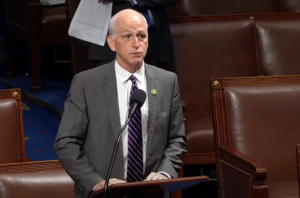
The House on Friday morning narrowly passed its $886 billion version of the Fiscal Year 2024 National Defense Authorization Act (NDAA) with a 219-210 vote, after adopting many contentious GOP-offered amendments that led nearly all Democrats to oppose the legislation. Following days of debate over Republican proposals that included reversing Pentagon policies on abortion and diversity programs, Democrat leaders on the House Armed Services Committee announced ahead of Friday’s vote they would oppose the legislation they said was now “an…

 By
By 











